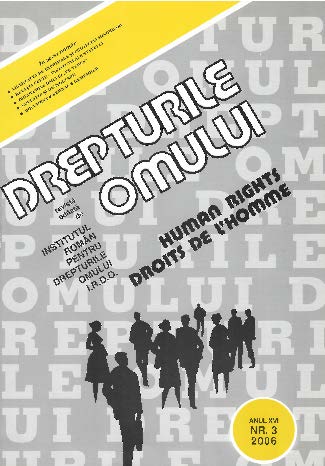Principalele aspecte privind libera circulație a lucrătorilor în spațiul Uniunii Europene
Main aspects related to the free circulation of workers in the European Union area
Author(s): Grigore Crăciunescu, Marius MocanuSubject(s): Human Rights and Humanitarian Law, EU-Legislation
Published by: Institutul Român pentru Drepturile Omului
Keywords: European Union; freedom of movement and of residence; workers; social security;
Summary/Abstract: Economically, the free movement of persons is meant first of all to create a unique labour market, while politically it is meant to achieve an increased cohesion of the European Union's peoples by eliminating the barriers against migration and promoting a communitarian citizenship. The right to free movement and residence for persons performing a paid activity is provided for under art. 39 in the Treaty Establishing the European Community. Moreover, the workers' freedom of movement is a fundamental right, which the national jurisdictions should defend. They are also entitled to equality of treatment, consisting among other things in working conditions equal to those enjoyed by the national workers in terms of wages, annulment of the labour contract and re-employment after an unemployment period. In order to provide actual freedom of movement to independent workers, measures were taken to coordinate the social security regimes and to harmonize or coordinate the regulations related to education, the various professions, as well as the creation and functioning of the various types of professional bodies. The persons' freedom of movement may be limited, by the member States, for such reasons as public order, public security, as well as public health.
Journal: Drepturile omului
- Issue Year: 2006
- Issue No: 3
- Page Range: 46-52
- Page Count: 7
- Language: Romanian

